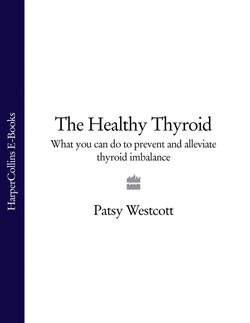Читать книгу The Healthy Thyroid: What you can do to prevent and alleviate thyroid imbalance - Patsy Westcott - Страница 11
Putting the Clues Together
ОглавлениеWomen, as we already know, are much more likely than men to develop thyroid disease. Many of those interviewed for this book added, almost as an afterthought, ‘My mother (or sister, or daughter) has thyroid problems, too.’ In particular, Graves’ disease and Hashimoto’s thyroiditis seem to cluster in families. In the past, this was dismissed as a coincidence. Recently, however, the new science of molecular genetics has led a number of researchers to look for an underlying inheritance factor in the development of autoimmunity. It is now generally agreed that as much as 10–15 per cent of us inherit an immune system with the potential to turn against itself.
Nevertheless, the development of thyroid problems is not just a matter of inheriting a faulty set of genes. Many people possess autoantibodies and do not go on to develop full-blown thyroid disease. In fact, it is estimated that only about one in 10 of those with an inherited tendency to develop thyroid antibodies will actually have thyroid problems.
One of the main aims of research, therefore, is to discover the possible triggers of thyroid problems. We know that the immune system can be damaged by many aspects of the 21st-century lifestyle that seem to have potential roles in the development of thyroid disease. Pollution, ageing, diet, stress, viral and bacterial infections, and habits like smoking and drinking are just some of the factors being explored by scientists in the hopes of finding out why the thyroid becomes faulty. Since 1995, much more information has been accrued on the roles these factors may play in triggering thyroid disease – and one important risk factor could simply lie in being female.
